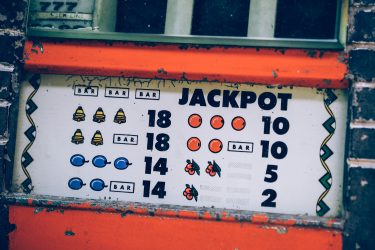 Lucky Casino operator Glitnor Services has been fined SEK400,000 by Swedish gambling regulator Spelinspektionen, after it was found to have offered games not permitted under the country’s Gambling Act.
Lucky Casino operator Glitnor Services has been fined SEK400,000 by Swedish gambling regulator Spelinspektionen, after it was found to have offered games not permitted under the country’s Gambling Act.Spelinspektionen said the offence was potentially severe, and could have resulted in a fine of up to SEK240m. However, it added, the fact the operator had flagged the breach and taken action to ensure a similar violation did not occur in future meant that a lower financial penalty and warning was sufficient punishment.
The case centred around three titles, Money Wheel, Dream Catcher, Monopoly Live and Deal or No Deal, which went live on Lucky Casino from 1 July 2019, and were eventually removed on 16 December that year. Over that period they were played by 478 players, generating turnover just under €69,000.
The games in question were different from the standard slot format, which spinning wheels or symbols rather than reels. While they awarded jackpots based on combinations generated by a random number generator, the regulator concluded that they did not fit the definition of a slot game, as set out in the Gambling Act.
This would have made them a form of lottery game, which would have resulted in a violation of Glitnor’s licence, as it is only certified to offer online casino and sports betting. However, the titles did not fit the act’s definition of a lottery game, meaning they should never have been launched in Sweden.
Offering unlicensed games was typically a serious infringement, as it violated consumer protection controls, Spelinspektionen said. In this case, it added, the violation had continued for around five months.
On the other hand, Spelinspektionen noted that Glitnor had been quick to flag the issue once it had been identified, and implemented a new approval process for all new casino content. The regulator therefore concluded that there was no reason to assume it would repeat the infringements.
This, it said, meant that a warning was sufficient punishment, but one that should be combined with a penalty fee.
This, it said, should be set between a minimum of SEK5,000, and no more than 10% of the operator’s annual turnover from licensed operations. Glitnor’s gross sales for the period from April 15 to December 31 2019 amounted to just over SEK1.71bn, which corresponds to an annual turnover of SEK2.40bn, based on Spelinspektionen’s estimates.
This would have justified an SEK240m fine, it said. However this was reduced based on Glitnor’s response to the violation, which suggested that the launch of the illegal games had been a genuine mistake. As such, it felt that a relatively low fine of SEK400,000 was merited.












